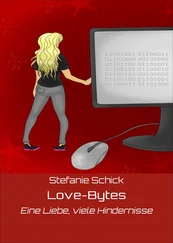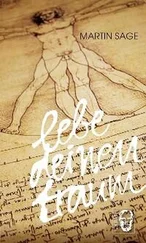He'd chosen as his academic fields computers, which at that time were unbelievably primitive compared to the ones Kaoru was familiar with, and molecular biology, which had just been revolutionized by the discovery of the double helix.
Eliot had had the uncanny intuition to combine these two emerging fields. His first research project had asked the simple question of whether or not it was possible to create artificial life within a computer.
He'd pursued this question through highly original means, and at length, his work began to bear fruit. Just as Eliot had foreseen, society's interest began to shift from space exploration to the creation of a user-friendly world of information. Computers were the stars of the age, and Eliot suddenly found that he had venues in which to present his work, and listeners to present it to.
With new wind in his sails, Eliot proceeded to develop the first self-replicating program, and then the first software that could evolve on its own. All without losing sight of his initial question. Is it possible to create artificial life in a computer?
He first realized his goal sooner than even he had expected, in the final years of the twentieth century. He'd never expected it to happen before the end of the century, he said; he'd shocked even himself. Of course, the beings he called life at that point were quite simple in structure, moving around onscreen in a way that resembled nothing so much as parasitic worms.
Then he caused male and female to appear, and at the beginning of the new century, new life had appeared within the computer of its own accord. The new cells divided again and again, and eventually they crawled around in the display just like their parents. Eliot called it a sight worthy of the new century.
Things accelerated after that. The basic process was much the same for all kinds of life forms. Producing fish or amphibians was all a matter of accumulating adaptations.
Having accomplished that much, Eliot allowed for an evolution in his ultimate goal. The question now became: Is it possible to create in a virtual space a biosphere on the scale of the Earth's?
This was the germ of the Loop project, an idea that at this stage was already pretty clearly defined.
At Eliot's invitation, scientists the world over began working toward a single goal. Computer scientists, medical doctors, molecular biologists, evolutionary theorists, astrophysicists, geologists, meteorologists-people from every branch of the sciences were involved. But interest wasn't confined to the hard sciences-economists, historians, political scientists, and social scientists of all stripes were paying attention, too.
Because it turned out to take more than just science to create a virtual Earth. It took an understanding of the humanities and social sciences as well. For this reason it was expected that the results of the Loop experiment would contribute to all fields. In addition to the basic evolutionary and biological mysteries, it was hoped that creating intelligent life forms in a virtual world would help provide clues to social problems such as wars and population increase, even fluctuations in the stock markets, areas in which it had been impossible to find definitive governing principles. Leading scientists in every field recognized the importance of the Loop project.
So the Loop started to function formally, in reality, with a budget equivalent to that of a full-fledged country.
Due to the reservations of certain government actors, the project couldn't be conducted in the open at first. Nobody could predict what might come of it-some new strategy for world domination, perhaps-and so it was felt that it should be carried out with the greatest circumspection. In the end, with no great ceremony, the project was launched as a joint effort by the U.S. and Japan.
The next name Eliot mentioned was one dear to Kaoru.
"Hideyuki Futami… Yes, he was a brilliant researcher. Young-fresh out of grad school-but he made the biggest contribution of anybody on the Japan side, I think." Eliot's phrasing tickled Kaoru-as was Eliot's intention, no doubt. Hearing one's father praised like this would make anyone feel good. Certainly that was the effect it had on Kaoru.
"Have you met my father?" Kaoru asked enthusiastically.
"Not face to face. But I heard about him, from my assistants."
Hideyuki had never talked much about the Loop. Kaoru was curious as to just what role Hideyuki had played in the project. He resolved to ask next time he saw him.
Eliot went on, interrupting Kaoru's thoughts of his father.
"I think you know what happened to the Loop after that."
"It turned cancerous."
"In the end, yes. But up to that point it was simply incredible. We'd never expected it to go so far."
He gave Kaoru a portentous look, as if urging him to ask the question.
"There was something you hadn't predicted?"
"Does it not surprise you? After all, you've seen a part of the Loop with your own eyes."
"So many things surprised me that I'm not sure what I should be surprised at."
Kaoru wasn't replicating Eliot's excitement, and this seemed to take the wind out of Eliot's sails: he sat there with his mouth half open, spittle dribbling from a corner of his lips. When a drop of drool began to descend on a clear string, Eliot finally noticed and wiped his mouth on his sleeve.
"We'd expected that with physical conditions the same as on Earth, we'd get roughly the same sorts of life forms. We didn't dream that they'd be exactly identical. In those days everybody thought that the course of evolution was guided by chance. It couldn't happen the same way twice."
That was indeed one of the things that had surprised Kaoru. The course of evolution in the Loop had been exactly the same as on Earth, down to the last detail, and it certainly mystified him.
"So what did you conclude from that?" he asked.
"We didn't see life naturally emerging in the Loop at the very beginning. So we introduced it. We introduced RNA, thought to be the earliest form of life. Sowing seeds-that was the metaphor we used, but it was no metaphor. That RNA was in all reality a seed, destined to grow into a certain, specific tree of life."
Kaoru had taken part in a discussion like this before, he remembered. With Ryoji. Reiko was dozing nearby while Ryoji and Kaoru debated evolution. And the point Ryoji had been trying to make then was more or less the same one Eliot seemed to be making now.
"What are you trying to say?" Kaoru tried to keep his tone cool and rational. If he broke in too unnaturally, the old man might start drooling again, and Kaoru had no desire to see that.
"The Loop matched up perfectly with reality. Life didn't emerge naturally in the Loop-that's why we sowed the seeds. Don't you realize what that means?"
It hit Kaoru. He remembered what Eliot had asked him at the beginning of their long conversation. Do you believe in God? That gave Kaoru the answer.
"That reality is only a virtual world, too, right?"
"Indeed. Life didn't emerge of its own accord on Earth, either. So why are we here? Because somebody sowed the seeds of life here. Who? The being we call God. God caused there to be life on Earth, and He made us in His image. The Bible was right."
Kaoru wasn't particularly shocked by this. He'd had the same thought many times on his journey to this point, but he hadn't been able to prove or disprove it. This was mere reasoning by analogy. It had no bearing on reality. It could not be verified. In the end, it would be, as it always had been, a question of belief or unbelief.
"But that doesn't change anything, does it?"
Eliot sank into his couch as if pushed there by Kaoru's logic. "Even if reality was created by a god, I'm not saying it was made in the same way as what we created in the computer."
Читать дальше
Конец ознакомительного отрывка
Купить книгу
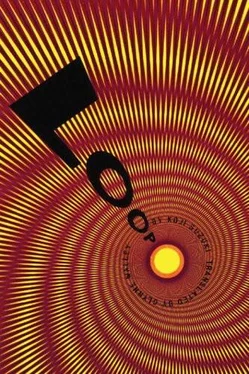
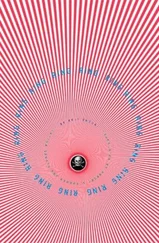

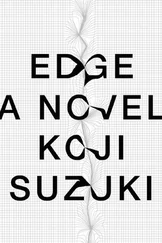

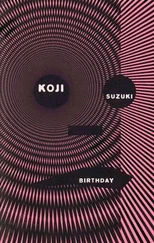
![Yuriy Ktitorov - Sasha [Love]. Part 1](/books/459553/yuriy-ktitorov-sasha-love-part-1-thumb.webp)
